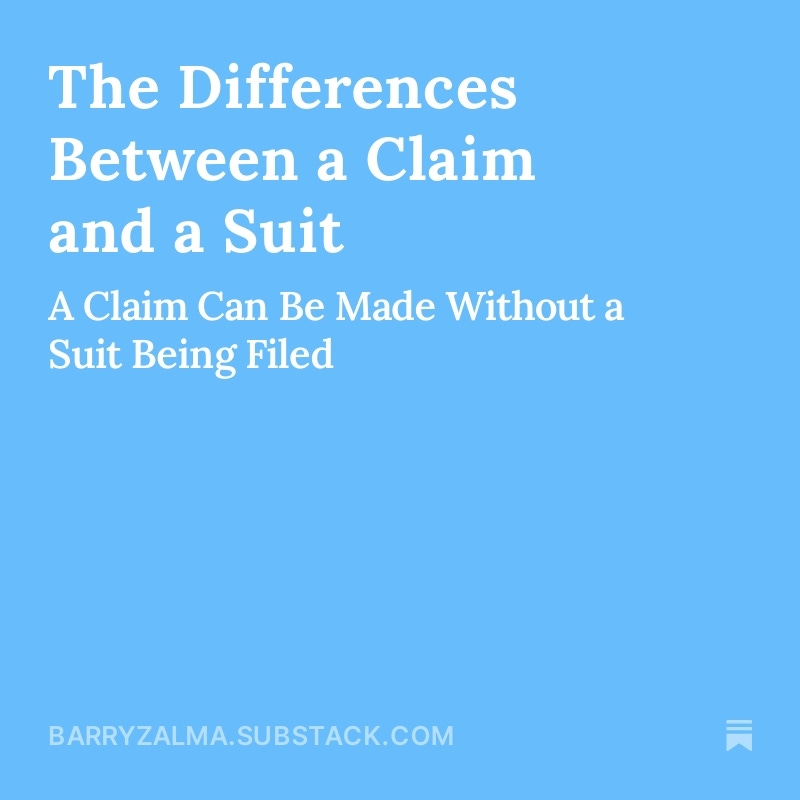The Differences Between a Claim and a Suit

An Excellence in Claims Handling publication from Barry Zalma for subscribers to the Excellence in Claims Handling publication for subscribers only.
You can subscribe at https://https://barryzalma.substack.com/subscribe
Liability policies generally contain language promising “to defend any suit against the insured.”
The policies will generally distinguish between a claim and a suit by compelling the insured to give notice of claims as well as suits. Courts usually recognize that there is a difference. A claim can be made without a suit being filed.
A mere statement by a claimant to an insured that he or she was injured as a result of the negligence of the insured is sufficient to give notice of a claim. A “suit,” on the other hand, usually requires the filing of allegations in a court of competent jurisdiction responding to the allegations made in the suit.
Most insurance policies require that the insured promptly or “as soon as possible” report a claim to the insurer even if there is no suit. By so requiring the insurer has the ability to investigate and try to resolve claims before expensive litigation begins.
We are 100% funded for October.
Thanks to everyone who helped out. 🥰
Xephula monthly operating expenses for 2024 - Server: $143/month - Backup Software: $6/month - Object Storage: $6/month - SMTP Service: $10/month - Stripe Processing Fees: ~$10/month - Total: $175/month
- Art
- Causes
- Crafts
- Crime
- Dance
- Drinks
- Film
- Finance
- Fitness
- Food
- Spellen
- Gardening
- Health
- Home
- Literature
- Music
- Networking
- Paranormal
- Other
- Politics
- Bedrijvengids
- News
- Party
- Science
- Religion
- Shopping
- Sports
- SyFy
- Politically Incorrect
- Philosophy
- Theater
- Technology
- Wellness



